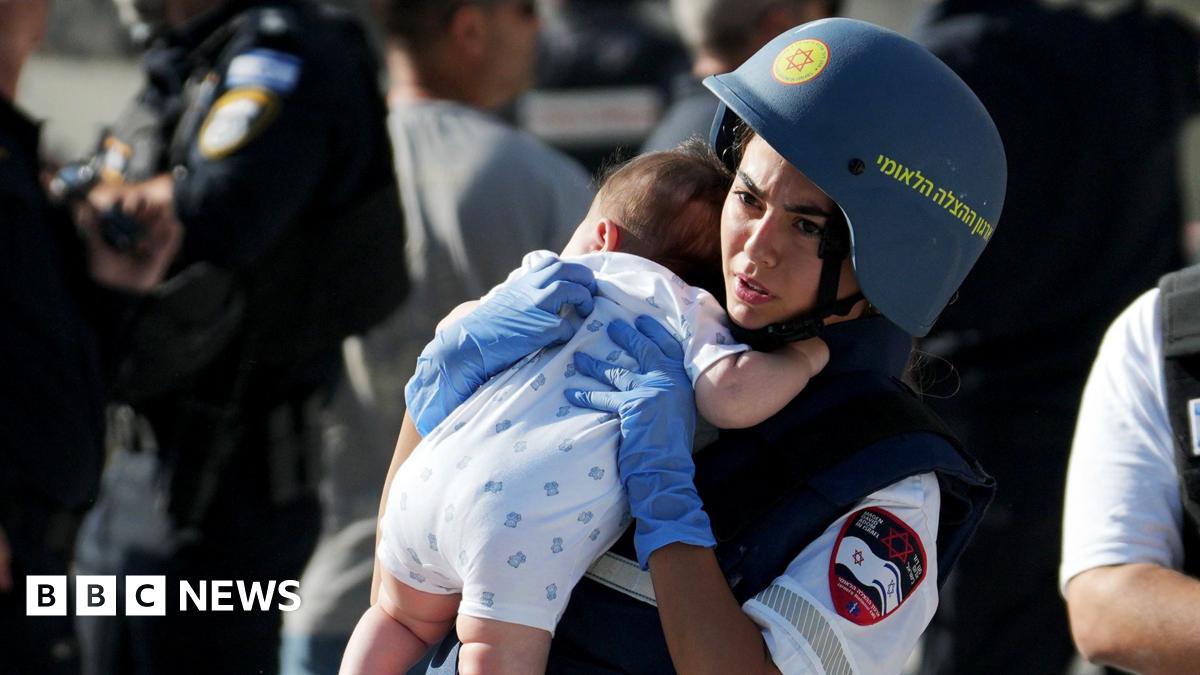Iran Warns US: Joining Israeli Strikes Will Unleash 'Hell' - BBC Exclusive

Tensions in the Middle East are escalating rapidly as Iran issues a stark warning to the United States. In an exclusive interview with BBC’s Lyse Doucet, Iran's Deputy Foreign Minister has cautioned that any direct US involvement in Israeli strikes against Iran would trigger a catastrophic response, potentially plunging the region into widespread conflict. This comes as the Trump administration weighs potential actions amid the ongoing conflict.
The warning highlights the delicate balance of power in the region and the potential for miscalculation that could easily spiral into a larger war. Iran’s statement is a clear message to Washington: stay out of the current conflict, or face severe consequences. The interview took place against a backdrop of heightened alert and growing anxieties about a wider regional war.
The Stakes Are High: A Region on Edge
The current situation stems from recent escalations between Israel and Iranian-backed groups, particularly following a deadly attack in Iran attributed to Israel. Iran has vowed retaliation, and the possibility of a direct confrontation between Israel and Iran, potentially involving the United States, has become a serious concern for international observers. The US has historically provided significant military and financial support to Israel, and the question of whether to expand its involvement in the current conflict is a complex one with far-reaching implications.
'This is Not America’s War': Iran's Core Argument
During the BBC interview, Iran’s Deputy Foreign Minister emphatically stated, “This is not America’s war.” He argued that US intervention would only exacerbate the situation, fueling instability and prolonging the conflict. He emphasized that the current tensions are rooted in regional disputes and that external interference would be counterproductive. The minister’s words reflect a broader narrative within Iran that seeks to portray the country as a victim of external aggression and to rally domestic support for its defensive posture.
US Considerations and Potential Responses
The Trump administration is reportedly considering a range of options, from diplomatic pressure to potential military action. However, any decision to directly engage in the conflict would be fraught with risks. A military intervention could trigger a wider war, drawing in other regional actors and potentially destabilizing the entire Middle East. Furthermore, a US intervention would likely face criticism from international allies who advocate for a more restrained approach.
Diplomacy as a Path Forward
While the situation remains volatile, diplomatic efforts to de-escalate tensions and find a peaceful resolution are crucial. The international community must work together to prevent a wider conflict and to address the underlying causes of the current crisis. Dialogue between all parties involved, including Iran and the United States, is essential to finding a sustainable solution.
The warning from Iran underscores the urgency of the situation and the potential consequences of miscalculation. The world is watching closely as the United States grapples with how to respond to the escalating tensions in the Middle East, and the stakes could not be higher. The coming days and weeks will be critical in determining whether the region descends into a wider war or whether diplomacy can prevail.






